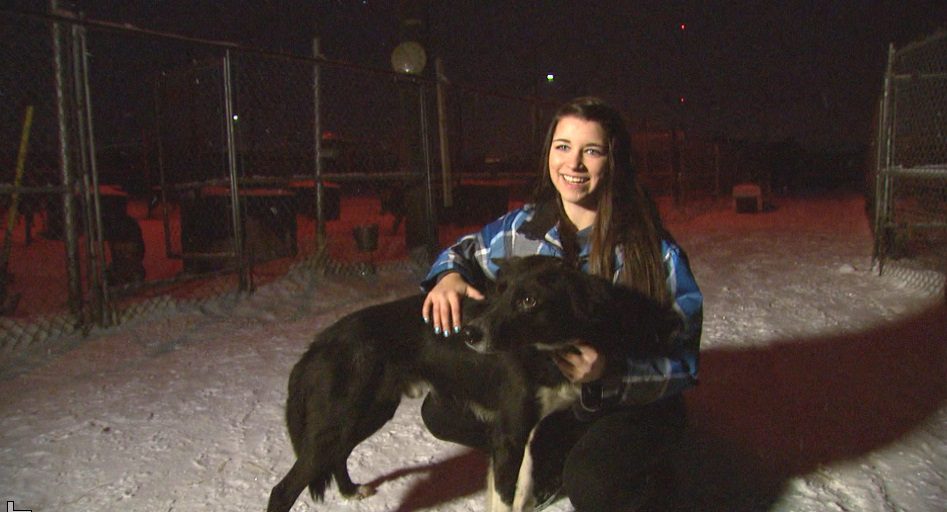Iman Kassam
APTN National News
YELLOWKNIFE – It takes Grant Beck nearly a week to make it home to Fort Resolution by dog team.
He and his dogs travel from Yellowknife, N.W.T., over Great Slave Lake and portage through man-made trails to return to his small community.
He lives in Yellowknife but does this trip home annually to teach youth in his community how to dog sled.
“We’ve always done it,” said Beck. “It’s natural for us.”
Dog sledding used to be the only way to travel long distances through the northern tundra, but since the invention of snowmobiles, the Beck’s are one of the few families in the area who still travel the traditional way.
He is a champion musher having traveled the world racing his dog team winning won four Canadian championships, one in Europe and a few world medals.
But his racing days are far behind him now. Today, he is a dogsledding tour guide and teacher, but not a day goes by where he doesn’t miss the championship life.
“I think about it a lot” he said. “Every time I look at videos it motivates me to get out with the dogs and think about what I’ve done and what I could still do, and it gives me great motivation to revisit some of the places I’ve raced.”
He lives above his business, Beck Kennels in Yellowknife.
Below, his yard is filled with roughly 100 dogs, 30 pups, a dozen toboggans and, yes, even some snow machines.
Every year his company takes thousands of tourists out on Grace Lake by dog team to give them a taste of traditional northern living. It has taken him several years to get to this level of success, but today he runs the top dog sledding tourism company in the area.
Whether it was when he was racing in the Alpes or taking tourists out on Grace Lake, working with dogs comes naturally to him. He started working with Alaskan huskies when he was seven-years-old and every day since then.
“The amount of time I spent with dogs and the relationship I have with the dogs is so much fun,” he said.
It takes about three years to train a lead dog to have the strength and confidence to lead the pack.
“You have to be patient with him, you have to make sure he’s enjoying what he does, and you build him up in stages like any athlete,” he said. “The mental part is the hardest. You have to communicate with them, they can’t tell you how they feel, you have to read them and work with them.”
And because of this, he ends up spending more time with dogs than he does with people.

His big project is teaching the next generation of dog mushers how to raise and care for working dogs, including his niece Taylor Beck, 16, who is a Canadian champion musher and a fifth-generation Beck family dog musher. She comes to the kennel almost every day after school to take care of the dogs and train with them.
“I can see everyone related to me and how far they’ve went with it and it’s just a connection to history and everything that I do, I know that they’ve been doing for many, many years,” she said.
The family was recently given an award of recognition from the Aboriginal Sports Circle of the N.W.T. The non-profit holds an annual award ceremony that recognizes the territory’s champion athletes and leaders. The Beck family was recognized for their five generations of dog mushing.

“We’ve all been recognized for something we love doing” said Taylor. “Not many people know what we do and how hard it is, so that now that they kind of know more about what we do and how we do it, it’s just a feeling that I can’t describe.”











